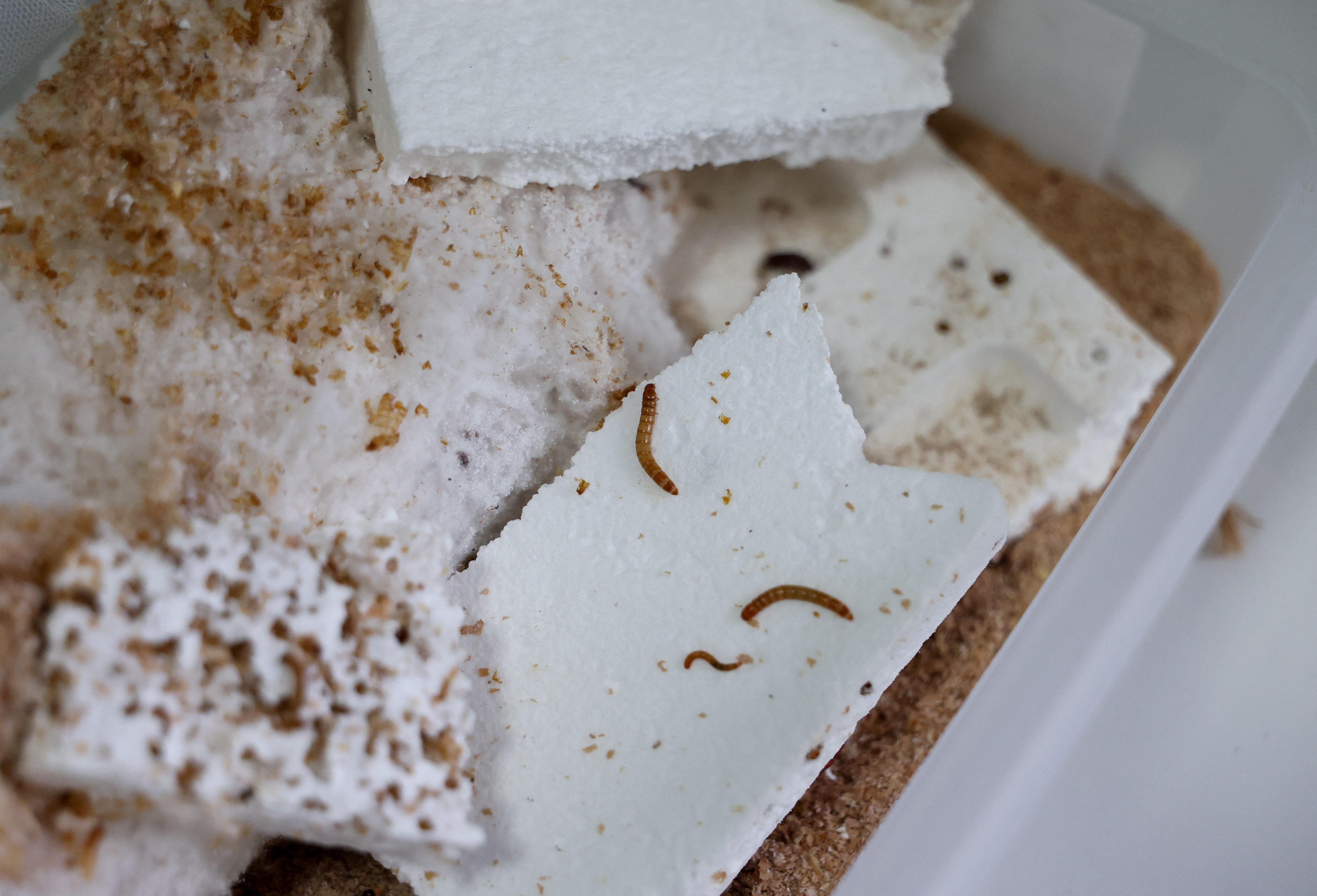Serbian scientists have been experimenting with mealworms as a way to break down polystyrene.
Larisa Ilijin, a principal research fellow at Belgrade’s Institute for Biology, said the scientists had discovered that mealworms can digest various plastics, including polystyrene, which is used in packaging, insulation and food containers.
In the project endorsed by the government and the United Nations’ agency for international development, UNDP, and other international donors, they have been including the polystyrene in the regular food of the larval form of the yellow mealworm beetle, or Tenebrio molitor.
They habitually eat more or less anything, but need the training to eat the plastic products.
“We have larvae that have been adapted over a long time to biodegrade plastic, to be as efficient as possible in the process,” Ilijin told Reuters.
She said the bacteria living in their guts break down the plastic into carbon dioxide and water, and showed no evidence of leaving microplastic residue in their innards or faeces.
The work builds on similar research projects in the U.S. and Africa.
Serbia, which hopes to join the EU, recycles only 15% of municipal waste, far below the EU’s 55% target and less than 2% of household waste.
Over 84% of waste ends up in about 3,000 landfill sites, often unregulated and filled with plastic, cardboard, paper and organic waste. It is looking for ways to meet EU waste treatment standards.
“Styrofoam takes over 500 years to decompose in nature … this would be one of the good ways for solving the problem of plastic waste in nature,” Ilijin said.
The institute has given Belgrade-based Belinda Animals several containers of the mealworms. It is now breeding them and hoping to attract a network of similar farms.
“When breaking down 1 kg of Styrofoam, larvae emit one to two grams of carbon dioxide … If we incinerate it … (Styrofoam) emits over 4,000 times more,” owner Boris Vasiljev said.
He also envisages the larvae being used as animal feed, should it reach a large commercial scale.
The use of mealworms is still in its infancy, Ilijin said, as Serbia still needs to adopt regulations that would allow the use and sale of insect products for animal fodder.






Click here to change your cookie preferences